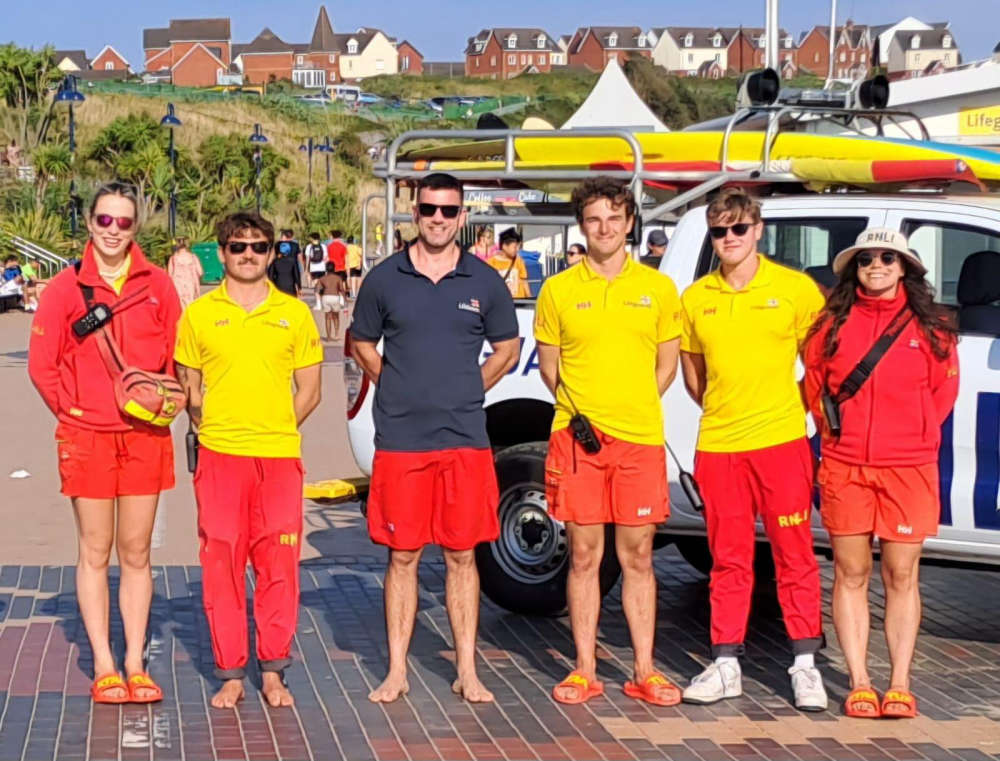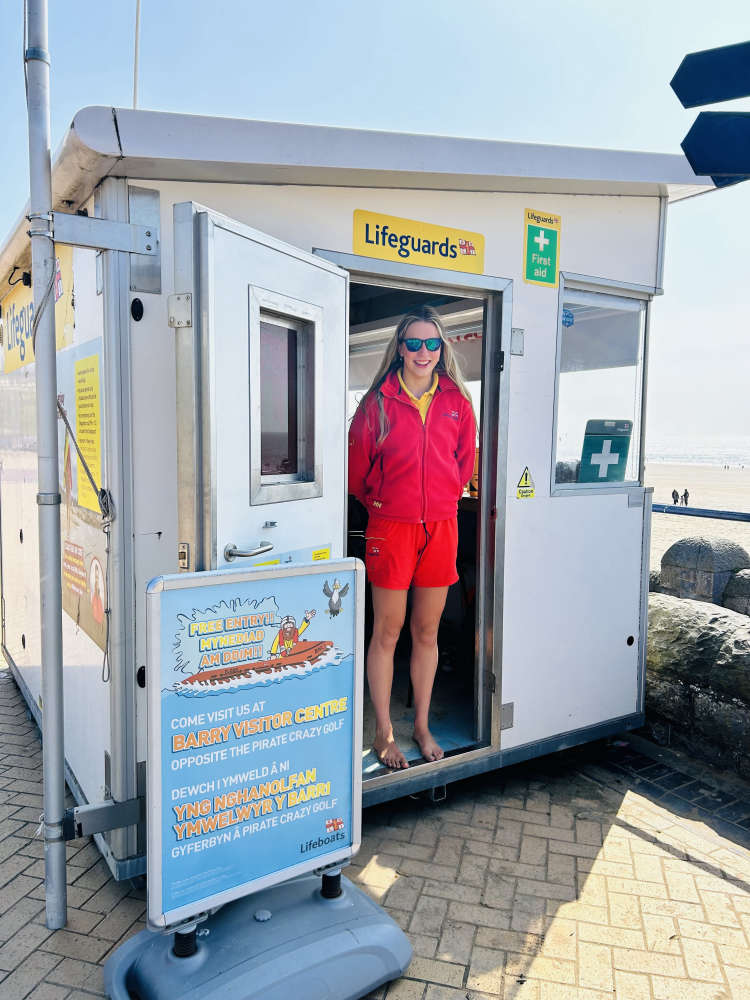
Whitmore Bay was the busiest beach patrolled by RNLI lifeguards in South East Wales this summer.
The lifeboat charity says it's seen a knock-on effect on a big jump in the number of rail passengers going to Barry Island.
The rail operator said the increase had been prompted by the introduction of new four-carriage trains and interest sparked by the Gavin and Stacey finale.
Lifeguards patrolled four beaches across the Vale during the summer, including Southerndown, Llantwit Major and Ogmore-by-Sea.
Matt Childs, RNLI lifeguard supervisor, said: "Whitmore Bay has been incredibly busy this season, and our lifeguards have yet again, done an amazing job keeping people safe."
"But with an increase in visitor numbers comes more incidents requiring lifeguard intervention. For example, anecdotally, on a busy day the team can deal with up to 40-50 missing children alone, a huge amount of work for the four lifeguards managing every aspect of beach safety for several thousand people."

"We’re pleased to see so many people enjoying the beach, but it’s vital that people are aware of the risks and understand our water safety messages, especially as we head into the winter when the lifeguards are not on patrol."
Lifeguards finished their summer patrols in the Vale last month - and they won't return until the Easter, prompting the RNLI to give safety advice for those visiting the coast over the winter.
Key tips include:
- Never swim alone: Always have company who can get help in case of an emergency.
- Check the weather: Conditions can change rapidly, and big waves or strong winds increase risk.
- Carry a means of contact: Always bring a mobile phone, and if you’re in trouble or see someone in difficulty, call 999 and ask for the Coastguard.
- Be aware of cold-water shock: The risk is significant in UK waters most of the year. But as the air and sea temperature drop, ensure you don't stay in the water too long and that you have adequate warm clothing for afterwards.
- Float to Live: If you find yourself struggling in the water, remember 'Float to Live'. tilt your head back with your ears in the water, use your arms and legs if you need to, try to relax, and float until help arrives.
Rip currents are one of the major risks during the colder months. If you’re caught in one, the RNLI advises:
- Don’t swim against the current.
- Swim parallel to the shore to escape the rip, then head back to land.
- Raise your hand and call out for help.
Andy Gavan, coxswain at Barry Dock RNLI, said: "Our volunteer lifeboat crews are on call 24/7, regardless of the weather or time of year. If you get into trouble or see anybody else in difficulty, don’t hesitate to call 999 and ask for the coastguard - who will dispatch the nearest lifeboat to help."




 Vale line closes for engineering works
Vale line closes for engineering works
 Freedom of the Vale for RNLI volunteers
Freedom of the Vale for RNLI volunteers
 Senedd moving out of Siambr
Senedd moving out of Siambr
 Norovirus: hospital pressure 'exceptional'
Norovirus: hospital pressure 'exceptional'
 Morgan grilled over £4.8bn benefit cuts
Morgan grilled over £4.8bn benefit cuts
 Barry Bike Club to return
Barry Bike Club to return
 St David bravery award for Penarth lifesaver
St David bravery award for Penarth lifesaver
 Ruth Jones honoured with St David Award
Ruth Jones honoured with St David Award
 Plans for ‘crumbling’ Senedd offices face scrutiny
Plans for ‘crumbling’ Senedd offices face scrutiny
 Work to start on new Vale campuses
Work to start on new Vale campuses
 Barry Company launches world's first edible soap
Barry Company launches world's first edible soap
 First Minister visits Barry Makerspace
First Minister visits Barry Makerspace
 Council's housing waiting list grows again
Council's housing waiting list grows again
 Cardiff Airport's chief exeuctive quits
Cardiff Airport's chief exeuctive quits
 Norovirus: hospital visitor ban extended
Norovirus: hospital visitor ban extended
 Littering on the increase, charity warns
Littering on the increase, charity warns
 Hot Chicks – 'powerfully performed yet disappointingly stereotypical'
Hot Chicks – 'powerfully performed yet disappointingly stereotypical'
 Unhealthy meal deal ban passes by one vote
Unhealthy meal deal ban passes by one vote





